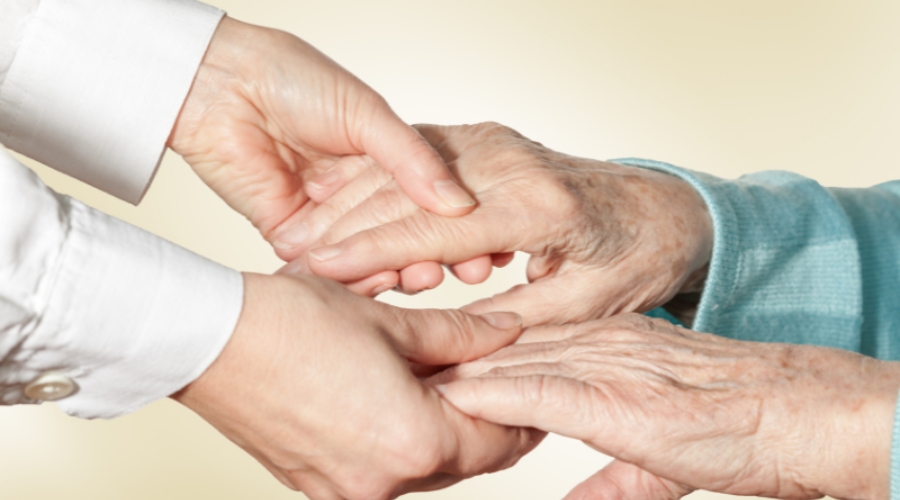Psoriasis in Seniors: Effective Strategies and Lifestyle Changes
Psoriasis, a chronic skin condition characterized by red, scaly patches, can pose significant challenges, especially for the elderly. As we age, our skin becomes more sensitive, making effective management of conditions like psoriasis not just beneficial, but essential for maintaining quality of life. This comprehensive guide aims to empower seniors with practical and effective strategies to manage psoriasis.
Understanding Psoriasis in Seniors
Psoriasis is an immune-mediated skin condition that accelerates the life cycle of skin cells, resulting in a buildup of cells on the skin’s surface. These patches can be itchy, painful, and even lead to psychological distress. In seniors, the impact of psoriasis can be compounded by age-related skin sensitivity and other health conditions.
1. Regular and Effective Moisturizing
Moisturization plays a pivotal role in managing psoriasis. Seniors should choose moisturizers specifically formulated for sensitive or psoriasis-prone skin. These products help keep the skin hydrated, reduce scaling, and alleviate discomfort associated with dryness. Regular application, especially after bathing, can provide significant relief.
2. Nutritional Approach to Skin Health
A balanced diet rich in anti-inflammatory foods can benefit individuals with psoriasis. Foods high in omega-3 fatty acids, like salmon and flaxseeds, and colorful fruits and vegetables rich in antioxidants, should be incorporated into daily meals. Hydration is equally crucial; drinking sufficient water helps maintain skin elasticity and health.
3. Gentle Skincare Products
The choice of skincare products is crucial. Seniors with psoriasis should avoid products containing alcohol, fragrances, or other harsh chemicals that can exacerbate skin irritation. Instead, opting for mild, fragrance-free cleansers and skincare products can help maintain skin integrity and prevent flare-ups.
4. Medical Consultation and Treatment Options
Consulting a dermatologist is essential for managing psoriasis effectively. Medical professionals can provide tailored treatment plans, which may include topical treatments, phototherapy, or systemic medications. They can also guide lifestyle modifications and skincare routines suitable for seniors with psoriasis.
5. Lifestyle Modifications
Apart from diet and skincare, other lifestyle factors can influence psoriasis. Stress management techniques such as meditation, yoga, or light exercise can be beneficial. Additionally, seniors should avoid triggers known to exacerbate psoriasis, such as smoking and excessive alcohol consumption.
Final Thoughts
Managing psoriasis as a senior involves a multifaceted approach, including proper skincare, nutritional adjustments, medical guidance, and lifestyle modifications. While psoriasis can be challenging, adopting these strategies can lead to significant improvements in skin health and overall well-being. Remember, every individual’s experience with psoriasis is unique, so it’s important to find what works best for you.
Frequently Asked Questions
What are the most effective natural remedies for psoriasis in seniors?
Natural remedies can be a complementary approach to managing psoriasis in seniors. Aloe vera, known for its soothing properties, can be applied topically to reduce redness and itching. Turmeric, either in diet or as a supplement, may also help due to its anti-inflammatory properties. Oats used in baths can provide relief from itching. However, it’s important to consult a healthcare provider before starting any natural remedies, especially if you are on other medications.
Can dietary changes impact psoriasis severity in elderly patients?
Yes, dietary changes can significantly impact psoriasis. A diet rich in anti-inflammatory foods like omega-3 fatty acids, whole grains, lean proteins, and plenty of fruits and vegetables can help reduce psoriasis flare-ups. Conversely, foods high in sugar, saturated fats, and alcohol might worsen symptoms. It’s always a good idea to consult with a dietitian to tailor a diet plan that suits individual health needs.
Are there any specific skincare products that seniors with psoriasis should avoid?
Seniors with psoriasis should avoid skincare products containing alcohol, fragrances, dyes, and other potential irritants. Products with salicylic acid or coal tar can be beneficial, but it’s important to use them under medical guidance as they can be harsh on aging skin. Hypoallergenic and non-comedogenic products are generally safer options.
How does psoriasis in seniors differ from that in younger people?
Psoriasis in seniors may present with thinner plaques and less scaling compared to younger individuals, due to the natural thinning of skin with age. Additionally, seniors might experience a higher sensitivity to medications and a slower response time to treatments. Coexisting health conditions and age-related skin changes also play a role in how psoriasis manifests and is managed in the elderly.
Is phototherapy a safe treatment option for seniors with psoriasis?
Phototherapy can be a safe and effective treatment for seniors with psoriasis, but it requires careful consideration. Age-related skin changes and a potential for coexisting conditions like cataracts or skin cancer necessitate a cautious approach. Always consult a dermatologist to understand the risks and benefits, and to tailor the treatment to individual health profiles.




